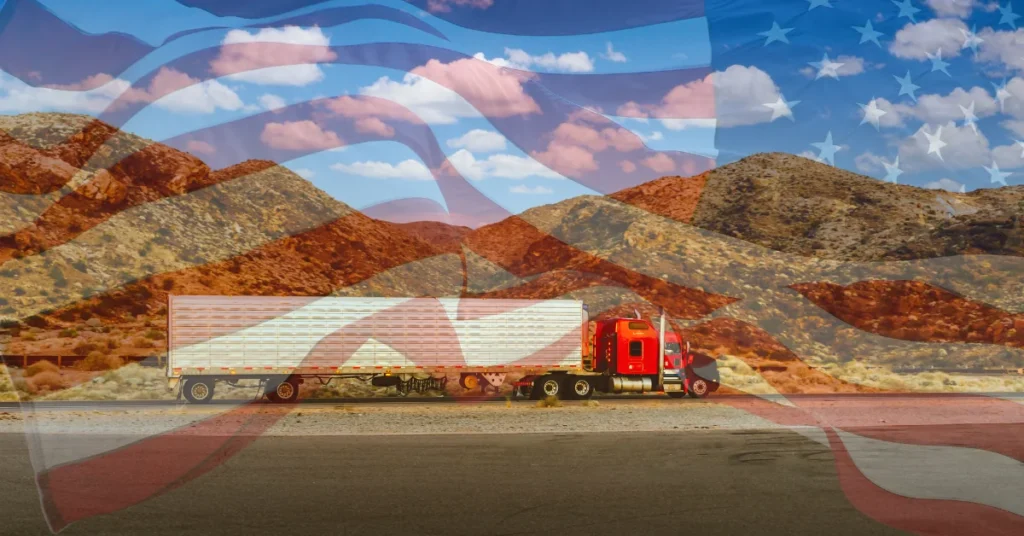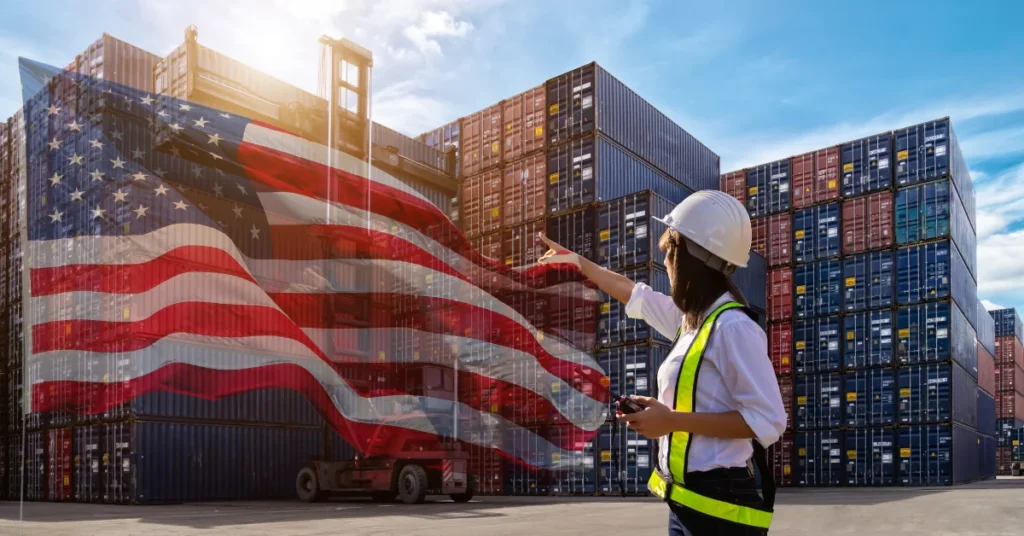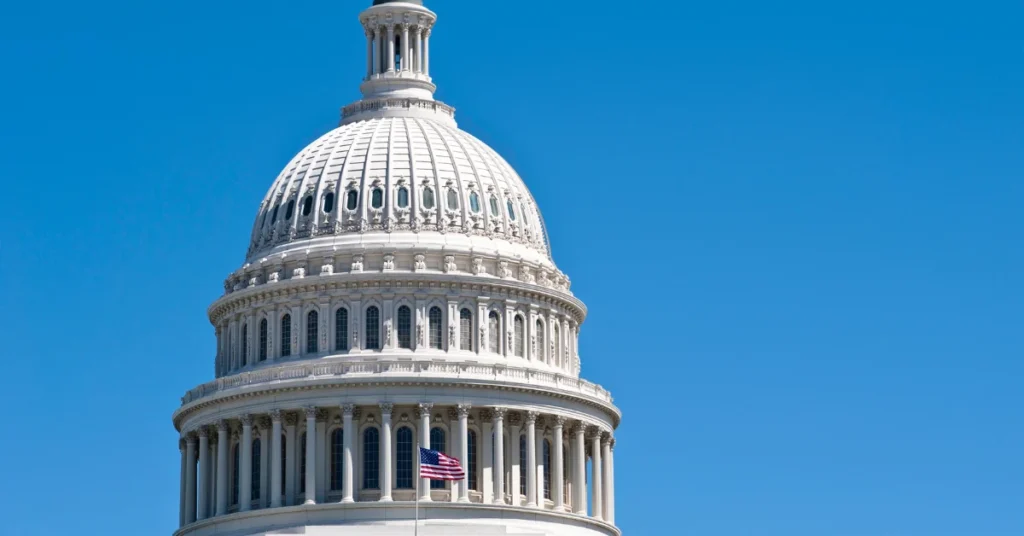Impact of the US Election on Freight: What to Expect for 2024
Table of Contents
- Impact of the US Election on Freight: What to Expect for 2024
The outcome of the U.S. election has a profound influence on numerous industries, with the freight and logistics sector being no exception. As the country’s economic backbone, freight transportation—whether via truck, rail, or ocean—feels the effects of policy shifts in areas like trade, tariffs, fuel costs, infrastructure, and labor. For companies reliant on efficient and cost-effective logistics, understanding how election results may impact the industry can be vital for strategic planning. This article explores the ways the 2024 U.S. election could affect the freight industry and provides insights for businesses preparing for the years ahead.
Key Political Policies That Impact Freight
1. Trade Policies and Tariffs
Trade policies and tariffs directly affect freight costs, especially for companies involved in international shipping. With shifts in leadership often come new policies on imports and exports, which impact freight in terms of demand and pricing.
- Cross-Border Shipping Impacts: Tariffs on imported goods increase costs for businesses and, by extension, consumers. Depending on the election outcome, tariff adjustments may affect the flow of goods across borders.
- Industry Example: A change in tariffs on goods from Asia can influence import rates, affecting everything from consumer electronics to raw materials used in manufacturing.
2. Infrastructure Funding and Development
Infrastructure investment plays a critical role in freight efficiency. Roadways, ports, and rail lines are essential for moving goods quickly and safely across the country. Investment in these areas could result in more efficient routes, reduced transit times, and a general boost in productivity.
- Potential Infrastructure Bill Changes: Each administration prioritizes infrastructure differently. Increased investment in highways, bridges, and railways can improve transport efficiency and reduce delays.
- Freight Cost Reductions: Better infrastructure can reduce fuel costs, maintenance expenses, and transit times, directly benefiting freight companies.
3. Environmental Regulations Affecting Transportation
The freight industry faces a range of environmental regulations that can impact operations and costs. Emissions standards, fuel regulations, and alternative energy incentives are key areas affected by election outcomes.
- Emissions Standards: Stricter emissions regulations may require freight companies to adopt cleaner technologies, adding initial costs but potentially reducing long-term fuel expenses.
- Incentives for Green Logistics: Policies favoring green energy may provide tax incentives for companies that invest in electric or hybrid vehicles for freight, ultimately cutting fuel costs.

Changes in Trade and Tariffs
Impact on Freight Costs
Freight companies closely monitor trade policies and tariffs since they directly impact shipping costs. The 2024 election could lead to shifts in trade agreements, such as those with key trading partners, which would alter tariffs and potentially reshape import/export costs.
- U.S.-China Relations: If tariffs between the U.S. and China shift, freight companies may experience changes in demand and pricing for goods moving between the two countries.
- Examples of Policy Effects: Previous elections brought shifts in tariffs that affected costs for consumer goods, agricultural products, and manufacturing materials.
Party Stances on Tariff Policies
Understanding party stances on tariffs can help businesses forecast potential changes in freight costs. For instance, some candidates favor protecting domestic industries with tariffs, while others emphasize free trade.

Infrastructure Investment and Its Influence on Freight
Importance of Infrastructure in Freight
Freight companies depend on well-maintained infrastructure to transport goods safely and efficiently. Investment in roads, bridges, and railways is critical to ensure minimal delays and safety.
- Proposed Infrastructure Plans: Both major political parties propose infrastructure investments, though the scale and focus may differ. These changes could affect freight transit times, shipping costs, and overall logistics efficiency.
- Data on Current Funding: According to the American Society of Civil Engineers, underfunded infrastructure costs the freight industry billions in transit delays and vehicle repairs each year.
Technological Integration in Infrastructure
In addition to traditional improvements, future infrastructure investments may include technology enhancements such as automated toll collection, intelligent traffic systems, and digital freight matching to optimize routes and reduce bottlenecks.
Fuel Price Policies and Freight Costs
Government Policies on Energy
Freight companies are heavily affected by fuel costs. Election outcomes influence energy policies, which can raise or lower fuel costs depending on the approach to fossil fuel production, renewable energy incentives, and fuel taxes.
- Tax Adjustments and Fuel Prices: Some policies propose fuel tax increases to support infrastructure funding, directly impacting freight costs.
- Renewable Energy Incentives: Tax incentives for adopting green technology may encourage freight companies to invest in electric vehicles, helping to reduce long-term fuel costs.
Case Study: Effects of Previous Energy Policies on Freight Costs
Past energy policies significantly influenced fuel prices, impacting freight expenses. For example, shifts in fuel production regulations during recent administrations caused considerable fluctuations in logistics costs.

Labor and Employment Policies in Freight
Minimum Wage Adjustments and Driver Shortages
Freight companies face labor costs, and policy changes can impact driver availability, wages, and retention. Both parties have different stances on labor laws, such as minimum wage adjustments, affecting freight expenses.
- Minimum Wage Proposals: If minimum wages increase, freight companies may experience higher labor costs, which could be passed down to customers.
- Labor Rights Policies: Policies related to labor rights, including benefits for gig and contract workers, could impact driver availability and overall costs.
Training and Safety Regulations for Drivers
Changes in driver training and safety regulations could also affect logistics companies. Stricter regulations may add initial costs for compliance but help prevent costly incidents in the long term.
Moving Forward: Preparing for Election-Related Changes
Businesses can benefit from understanding potential election impacts on freight. Planning for infrastructure updates, adjusting for trade policy changes, and factoring in energy costs can help logistics companies anticipate industry changes and adjust accordingly.
Scenario Planning for Freight Companies
By using scenario planning, companies can prepare for different policy outcomes, whether it involves budgeting for new tariffs, infrastructure changes, or fuel costs.
Partnering with Policy Experts
Freight companies can benefit from collaborating with experts who understand government regulations. Partnering with trade consultants, logistics analysts, and legal advisors ensures compliance and informed decision-making.

FAQ Section
- How does the election influence freight fuel costs?
Election outcomes impact energy policies, which determine fuel tax rates and incentives for renewable energy. - What effect do tariffs have on freight shipping?
Tariffs affect import and export costs, impacting cross-border freight rates and demand for certain goods. - Why is infrastructure investment important for freight?
Investments in infrastructure improve road, rail, and port efficiency, reducing freight transit times and costs. - How do labor policies impact the freight industry?
Labor policies, like minimum wage increases, affect driver wages and availability, impacting freight costs. - Are environmental policies important to freight companies?
Yes, stricter regulations increase costs initially but encourage cleaner technology and fuel efficiency in the long run.





